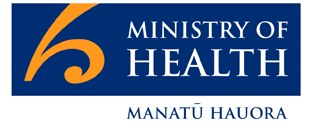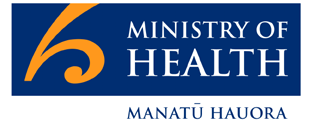


 Regulated Products Appeals Committee (RPAC)
Regulated Products Appeals Committee (RPAC)
1 Terms of Reference
This document sets out the Terms of Reference for the Regulated Products Appeals
Committee (
the Committee).
2 Mandate
The Committee is established under section 79 of the Smokefree Environments and
Regulated Products Act 1990 (
the Act). The Committee’s function is to determine
appeals against decisions of the Director-General of Health (
the Director-General) to
cancel or suspend a product notification.
The Committee may, subject to any provision of the Act or the regulations, regulate its own
procedure.
3 Background
The Director-General may suspend or cancel a product notification in accordance with
section 74 or 75 of the Act.
Before suspending or cancelling a product notification, the Director-General must give the
notifier a reasonable opportunity to be heard.
If, after hearing the notifier, the Director-General suspends or cancels a product
notification, section 76 of the Act provides the notifier with a right to appeal to the
Committee against the decision. Any such appeal must be lodged within 60 days after the
Director-General’s decision, or within any further period that the Commit ee allows.
The Director-General’s decision remains in force unless and until the Commit ee orders
otherwise.
A party may only appeal to the High Court against a decision of the Commit ee on a
under the Official Information Act 1982
question of law.
4 Authority
Day-to-day administration of the Act is carried out by the Vaping Regulatory Authority (
the
Authority) within the Ministry of Health (
the Ministry) under delegation from the Director-
Released
General.
5 Secretariat
The Committee is assisted by a Secretariat (
the Secretariat) comprising such Ministry
staff as required and as appointed by the Authority.
The Secretariat can be contacted by emailed at: [email address].
1
6 Functions
6.1 Rehear a notifier in relation to a decision by the Director-General
The Committee will only hear and determine a notifier’s appeal in relation to a decision to
suspend or cancel a product notification.
[Note: It is not the Commit ee’s function to review any decision, or any part of a decision,
not under appeal.]
6.2 Confirm, reverse or modify a decision of the Director-General
On hearing the appeal, the Commit ee may confirm, reverse, or modify the Director-
General’s decision under appeal.
7 Membership
7.1 Composition of Committee
1982
The Commit ee consists of 3 members, with each appointed by the responsible Minister
(
the Minister) on any terms and conditions that the Minister thinks fit. Act
7.2 Appointment and reappointment of members
Members wil be appointed by notice in writing by the Minister for a term of 3 years but can
be reappointed for further terms by the Authority. It is envisaged that, as a general rule,
members wil serve for one or two terms.
Information
7.3 Chairperson
The Minister shall appoint one member as Chairperson of the Committee.
It is the responsibility of the Chairperson to ensure t
Official hat:
• discussions remain on-topic
the
• discussions are completed within allocated discussion time
• all votes are accounted for, and
• a decision is reached by majority or consensus.
under
The Chairperson shall not have the right of a casting vote to break deadlocked decisions.
7.4 Resignation and removal of members
Any member can resign from the Committee by giving written notice to the Secretariat.
Released
Any member who has resigned may continue in office until their replacement is appointed,
if this is agreed upon by the Chairperson.
The Minister can remove any member from the Committee, and the Chairperson from their
position as Chairperson, by notice in writing.
8 Meetings of the Committee
The Secretariat wil schedule meetings as necessary to hear appeal requests. If and where
practicable, meetings wil be by video conference or teleconference.
2
Members are expected to make every effort to attend all scheduled meetings and devote
sufficient time to become familiar with its affairs and the wider environment within which it
operates. Members are expected to prepare for meetings by reviewing any material
provided and must advise the Chairperson, in advance, if they are unable to attend a
meeting.
Members may be asked by the Chairperson to lead discussions on any agenda item.
Members are expected to review draft meeting minutes and provide comment to the
Secretariat.
9 Fees and al owances
Members of any Ministry committee may be paid fees for attendance at meetings in
accordance with the Public Service Commission's framework for fees for statutory bodies.
Fees have been estimated based on Cabinet Office Circular CO(19)1
Fees framework for
members appointed to bodies in which the Crown has an interest.
1982
The Commit ee is classified as
All Other Committees and Other Bodies, and
Act the fee
scale was evaluated under Group 4.
Role
Fee ($/day*)
Chairperson
250-365
Member
190-270
* before tax
Information
Members wil also be paid for meeting preparation time at the daily rate on a pro rata basis.
The Ministry wil cover actual and reasonable costs associated with attending in-person
meetings.
Official
10 Conduct
the
10.1 Requirement under the Act
In performing its functions or exercising its powers under the Act, the Committee must act
independently and comply with the principles of natural justice.
under
10.2 Ministry conflict of interest rules and guidelines
Members of the committee are expected to adhere to the Ministry's
conflict of interest rules
and guidelines.
The Ministry’s business rules applicable to commit ee members are:
Released
• Anyone representing the Ministry in an official role needs to understand what a
conflict of interest is.
• Any actual, perceived or potential conflicts must be reported to the Secretariat
and/or chairperson without delay.
• Personal or private interests that have the potential to cause a perceived conflict
of interest must be formally declared, following the Ministry’s process.
• The Chairperson with the support of the responsible Ministry manager, must
determine the steps that should be taken to deal with or manage an actual,
perceived or potential conflict of interest.
3
• The offer or acceptance of a gift to you in connection with your official duties may
be deemed a conflict of interest. Any gifts you receive need to be declared in
accordance with the relevant rules and guidelines.
• Al committee, board or advisory group members must declare all personal and
private interests to their chairperson prior to each official meeting.
The Ministry’s guidelines for committees, working parties, advisory groups and panels are:
• Managers in charge of these groupings have responsibility for ensuring members
are made aware of their responsibilities.
• Members of commit ees, working parties, advisory groups and tender evaluation
panels need to complete a declaration form, irrespective of whether they have a
conflict of interest.
• Any actual, perceived or potential conflicts of interest must be disclosed on the
declaration form.
• External parties with known conflicts of interest should only be appointed if
1982 it is in
the clear interests of the Ministry to do so and with appropriate management
strategies in place.
Act
• All committees, working parties, advisory groups and tender evaluation panels
must have conflicts of interest as the first item on their meeting agenda to
accommodate disclosure and to ensure the Conflicts of Interest Register is kept
up-to-date and accurate.
• Conflicts of interest must be considered with every agenda item, the extent of any
conflict/s assessed and fully documented in the minutes including action taken to
manage the conflict.
Information
• Conflicts of interest requirements applicable to the appointment of board members
are also contained in the New Zealand Public Health and Disability Act 2000, the
Crown Entities Act 2004 and the State Services Commission’s Board Appointment
and Induction Guidelines.
Official
10.3 Notice of conflicts of interest prior to appointment
the
Before members can be appointed to the Committee, they must sign the Ministry
Declaration Form regarding whether the appointee:
• has read and understands
under the Ministry’s Conflicts of Interest Rules and Guidelines,
and related material
• has no interests that would potentially impact on their obligations to the Ministry in
the role applied for, and
• will notify the Authority of any actual, potential or perceived conflicts of interest that
may arise, or that they become aware of, while a member of the Commit ee.
Released
10.4 Conflicts of interest arising after appointment
If, during the course of the Committee’s business, any member finds that they have a
conflict of interest in any matter being considered by the Committee they must disclose the
nature of the conflict of interest to the Commit ee as soon as it is practicable after the facts
have come to the member’s knowledge.
To aid this process the Secretariat wil circulate a conflict of interest form with subsequent
agendas to allow members to disclose new potential conflicts of interest, if they arise (and
have not previously been disclosed).
4
Any conflict of interest disclosure wil be recorded in a register maintained by the
Secretariat.
If a member has disclosed a potential conflict of interest, they may still participate in the
discussions and decisions of the Committee, subject to approval of other Committee
members. If this is the case the minutes shall reflect the situation.
10.5 Disclosure of confidential information
Meetings, including agenda material and minutes, are confidential. Members must ensure
that the confidentiality of Committee business is maintained.
Members are free to express their own views within the context of meetings, or the
Committee’s general business. Irrespective of their own views, members must publicly
support a course of action decided by the Committee, or if unable to do that, must not
publicly comment on such decisions.
1982
At no time shall members individually divulge details of Committee matters or decisions to
people who are not members, or Ministry of Health employees. A decisi
Act on to disclose
Committee business outside the Ministry must be the Authority’s decision made in liaison
with the Chairperson.
Members must ensure that documents are kept securely to ensure that confidentiality is
maintained. At the end of a member's term, all Committee information must be returned to
the Secretariat.
Information
10.6 Media releases and public comment
Members should notify the Chairperson and the Secretariat if they are approached for
comment on any issue related to the Committee, past or present.
Official
Any media release by the Committee or members must be issued under the authority of
the Chairperson. Members must not issue media releases or public comments related to
the
issues before the Committee, either in their personal or professional capacity, except as
authorised by the Chairperson. The Chairperson must clear any media release with the
Authority prior to making the media release.
under
10.7 Liability
Members are not liable for any act or omission done or omitted in their capacity as a
Committee member, if they acted in good faith, and with reasonable care, in pursuance of
the Committee’s functions.
Released
5
Regulated Products Appeals Committee Membership Agreement
I, ________________________________ (full name) agree to the terms and conditions
of appointment as a member to the
Regulatory Products Appeals Committee as set
out in the Committee Terms of Reference.
______________________ (signature)
_______________ (date)
1982
Act
Please return to the RPAC Secretariat:
Information
[email address].
Official
the
under
Released
6
Document Outline



